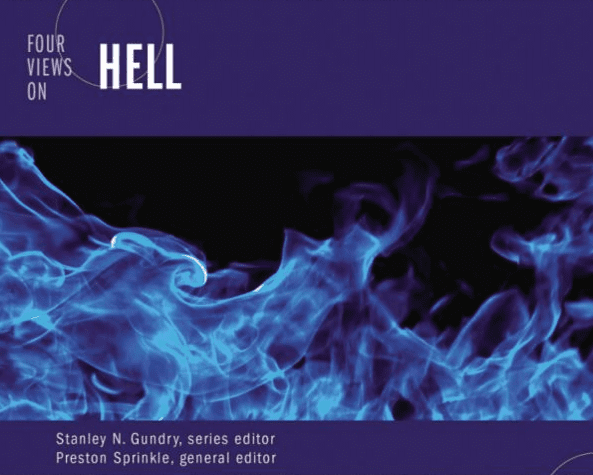 For many people today what one believes about hell is a matter of fidelity to orthodoxy. Most don’t quite want to contend that if you don’t believe in eternal, conscious punishment you are a heretic though some get mighty close. In fact, for some the gospel itself is shaped to get people out of (a theory for) hell that is about eternal, conscious punishment. In other words, change hell you might change the whole gospel for these sorts. So, when Edward Fudge, in his many writings, including Hell: A Final Word, contends the Old Testament only teaches consuming fire and not an eternal conscious punishment, some stridently warn him of falling off the “faithful cliff.”
For many people today what one believes about hell is a matter of fidelity to orthodoxy. Most don’t quite want to contend that if you don’t believe in eternal, conscious punishment you are a heretic though some get mighty close. In fact, for some the gospel itself is shaped to get people out of (a theory for) hell that is about eternal, conscious punishment. In other words, change hell you might change the whole gospel for these sorts. So, when Edward Fudge, in his many writings, including Hell: A Final Word, contends the Old Testament only teaches consuming fire and not an eternal conscious punishment, some stridently warn him of falling off the “faithful cliff.”
Yes, I detect a genuine pursuit of truth on the part of Ed Fudge, and so when he examines each of the four pillars for the traditional view, and what the OT says is the first one, I am interested to see what he sees. The second pillar is the Jewish context. The simple contentions are these: (1) there was one Jewish view and (2) that view was eternal conscious punishment. [For hermeneutics, remember this: anyone who says “the” Jewish view on something is probably either exaggerating and uninformed. Except in the obvious — murder, etc — there was plenty of diversity among Jews.]
How often do you hear “the” Jewish view when it comes to eternal punishment or hell? Why do you think “hell” is so inflammatory of an issue (no pun)?
From the days of Malachi to the time of Jesus was about 400 years, the equivalent of the publication of the King James Bible and the NIV 2011. We are talking then about the end of the Old Testament and the production of the apocrypha, the pseudepigrapha, the Dead Sea Scrolls, and then writings that we find after the New Testament that draw on a deep history that goes back into the time before Jesus, in literature like the Targums, the Mishnah, the Tosefta, and various other Jewish documents.
In general, Fudge contends the Apocrypha agrees with the “fire that consumes” conclusion of the Old Testament but he finds an eternal conscious punishment in Judith 16:17: “Woe to the nations… the Lord Almighty will take vengeance against them in the day of judgment, to put fire and worms in their flesh; and they will weep and feel their pain forever.” Isaiah’s dead corpses here are revolutionized into living torment. From a fire that consumes to a fire that torments.
Rabbis: diversity rules. Some saw a fire that torments forever, some that torments temporarily, some a fire that purifies, and others a fire that consumes. Some experts on Jewish theology even think the torments forever language is an image for total annihilation.
Dead Sea Scrolls: “consistently expected the wicked finally to be destroyed and gone forever” (85). Fudge sees the Scrolls in general depicting a fire that consumes. There is no fire that torments forever.
Pseudepigrapha: Variety. A fire that consumes is found in Psalms of Solomon 13:11: the wicked “will be taken away into destruction, and their memorial will be found no more.” A fire that torments in 2 Enoch 10:1-6, where we see [and I quote from Charlesworth’s edition] “a very frightful place; every kind of torture and torment is in that place, and darkness and gloom and there is no light there, but a black fire blazes up perpetually… places of detention and cruel angels and carriers of torture implements, tormenting without pity… for all these this place has been prepared as an eternal reward.” This is Dante-esque stuff.
Fudge: there is no such thing as the Jewish view at the time of Jesus, so we will look at Jesus’ view in the next post.















